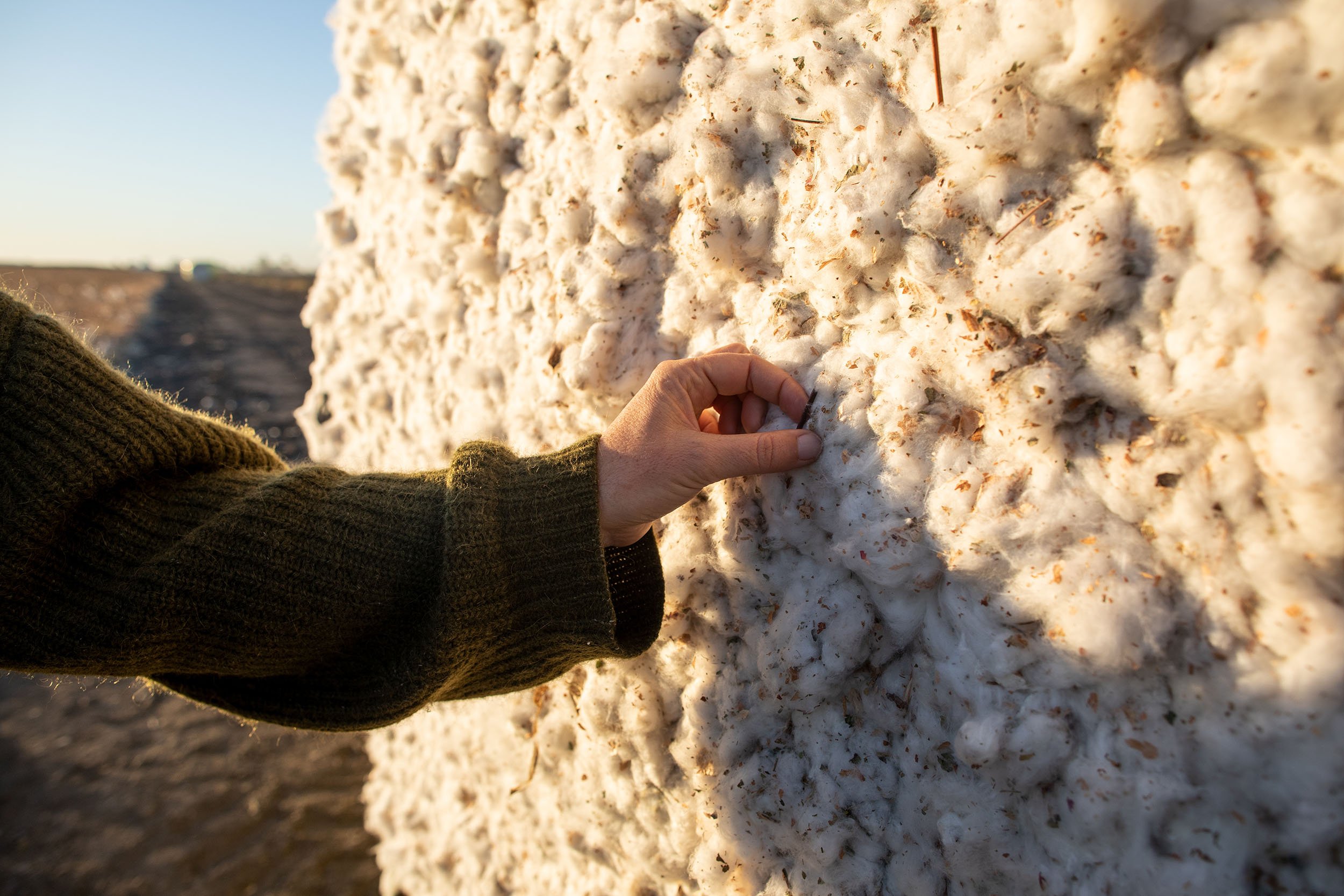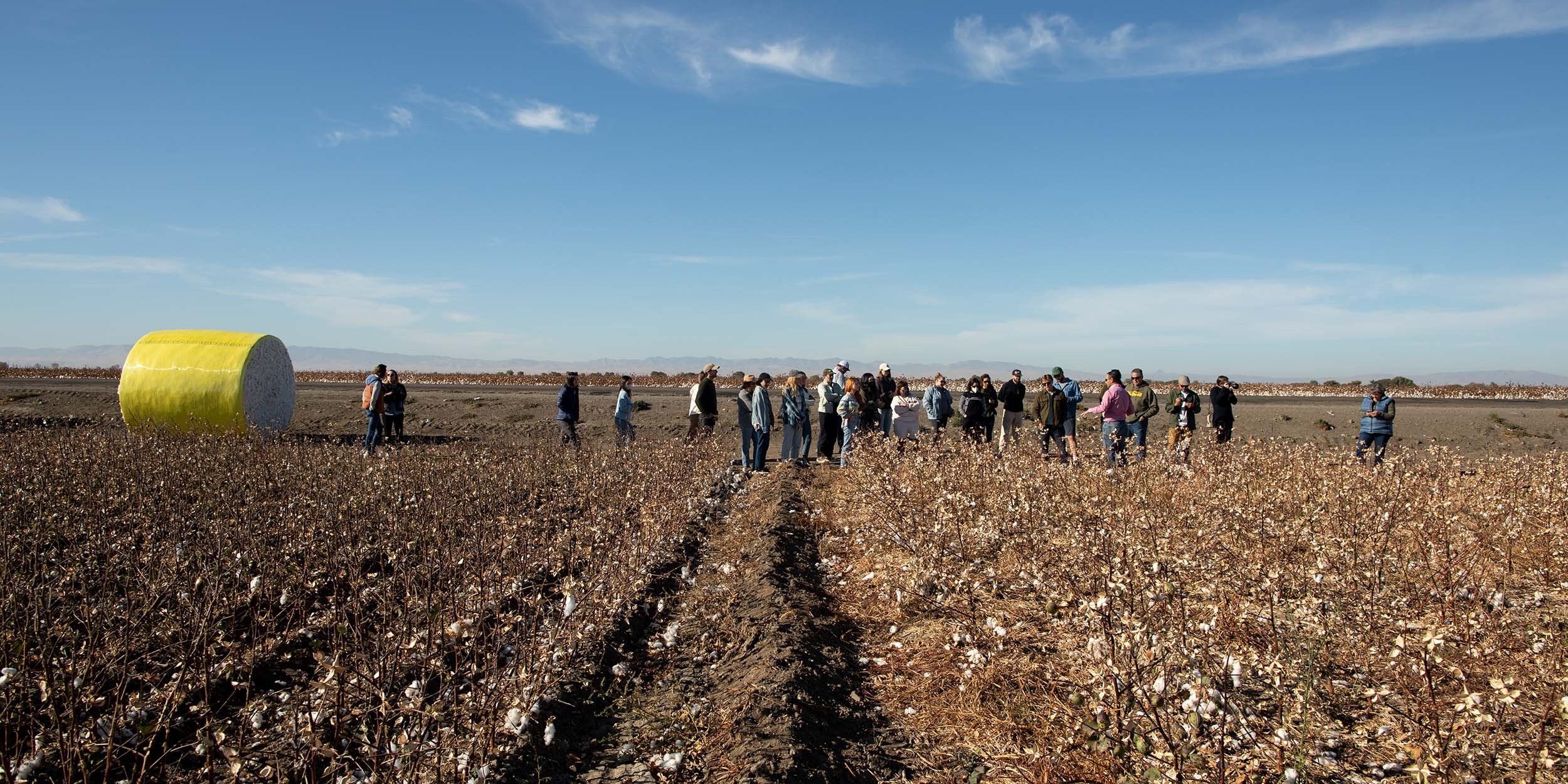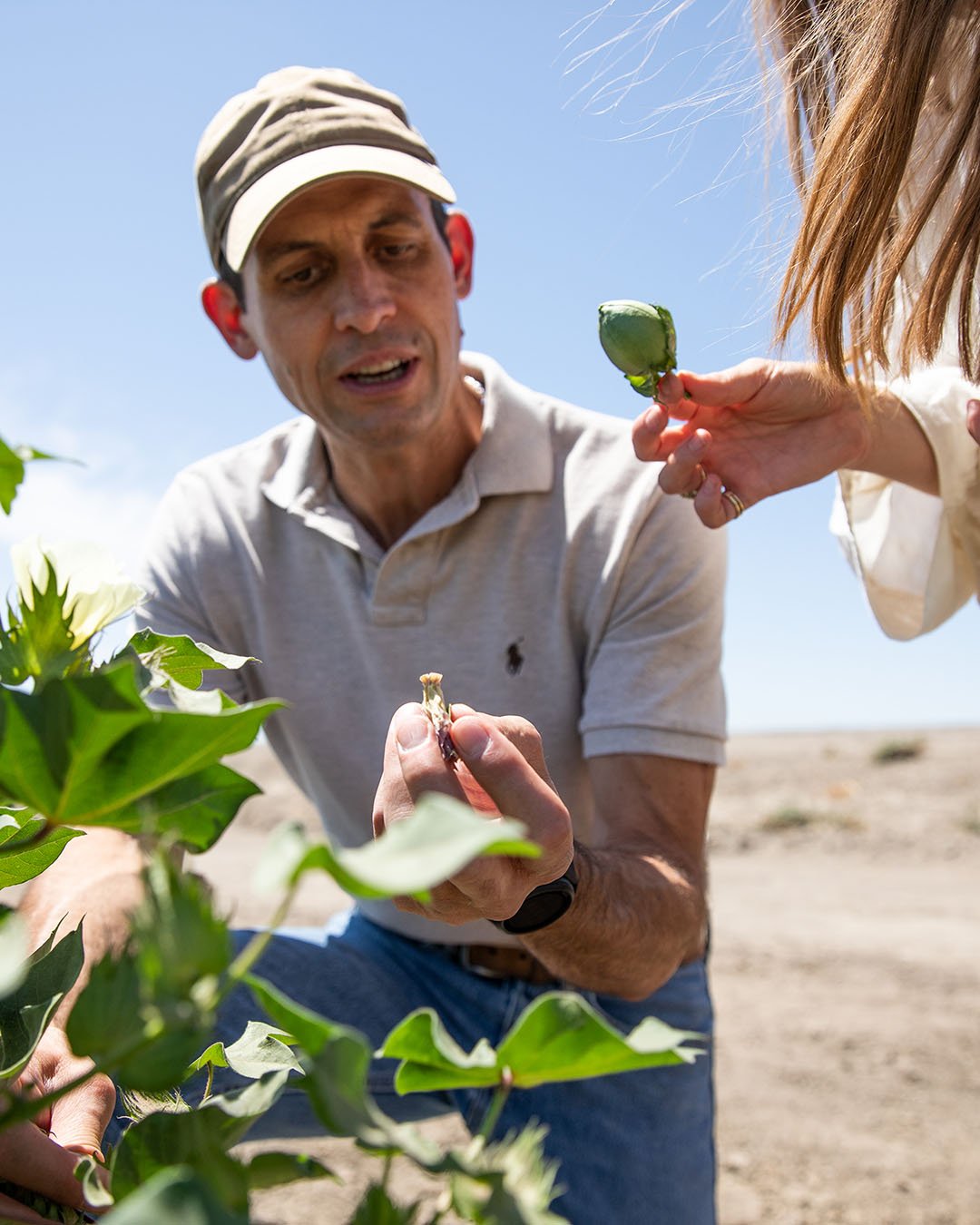
Cotton: Reimagining a California Keystone Crop
Why Cotton?
Cotton growing systems in the United States produce more than a third of the world’s cotton yield. In California alone, over 187,000 acres of cotton are harvested each year.
These cotton-producing landscapes boast some of the highest quantitative and qualitative production levels worldwide; however, current production systems have taken a toll on soil health indicators and have resulted in declining rates of soil organic carbon across the landscapes where this important crop is grown.
Through projects such as the California Cotton and Climate Coalition and Buttonwillow Alley Cropping Demonstration Site, we are able to study how climate beneficial farming practices affect not only cotton production yield, but overall soil health.
The California Cotton & Climate Coalition (C4)
Photography by Paige Green
The California Cotton and Climate Coalition, or C4, is a relationship building project where farmers, merchant and gin operators, researchers, farm technical service advisors, nonprofit organizers, family foundation funders, brands, designers, textile developers, spinners, and textile mills are working together to bring a new agronomic and textile development system forward that is generating natural material goods for the marketplace.
Through the coalition, brands are sourcing farm-forward from acreage that has been managed using conventional practices and chemical inputs which is now undergoing a transition to biological, soil building, and climate beneficial practices. Learnings from this project can create a roadmap for the additional 187,000 acres currently growing cotton in California.
Project Goals:
Increase soil biology and life
Increase soil carbon
Decrease the use of synthetic fertilizers, insecticides, and herbicides
Create a model for a California-based, biologically focused, cotton farming system that prioritizes soil health in both a conventional and organic farming context
Project Partners:
On-Farm Technical Assistance Led by Carry Crum
Coalition Members:
Buttonwillow Alley Cropping - Demonstration Site
Located in the San Joaquin Valley, this demonstration site will compare soil health and production outcomes in an organic cotton production system to an adjacent system that integrates olive and mulberry tree crops into an alley cropped organic cotton production system. Project outcomes will include data gathered on soil heath, yield and economic return. Cotton producers in this region, while among the most productive in the world, are facing mounting ecological and economic challenges as the impacts of climate change collide with the low biodiversity and soil organic matter levels that characterize the typical monoculture systems in these counties. Combined pressure from environmental constraints and global markets present great opportunities for a new alternative presented by diversified farming systems integrating row crops and orchard crops while improving soil quality and health.
The potential for this project to inspire widespread adoption of the alley cropping practice is supported by the nature of our project team and the networks of producers we are already engaged with to encourage new conservation practice implementation.
Our Target Outcomes
Developing water efficient cropping systems for cotton
Decreasing soil salinity
Long-term carbon sequestration
Increasing biodiversity
Building soil health
Demonstrating economically viable enterprises
Expanding the scientific knowledge base related to regenerative agriculture
Practices We’re Trialing
High diversity cover crops
Multi-species alley cropping systems
Holistic grazing management
Biological fertility and integrative pest management
Crop rotation
Our Partners:
Gonzales-Siemens Family Farm
This project is partially funded by the Healthy Soils Program supported by the California Department of Food and Agriculture’s (CDFA) Climate Smart Agriculture program.

Sign Up for Our Emails
Stay current on what’s happening with our projects and be the first to know of opportunities to engage and get involved!

























